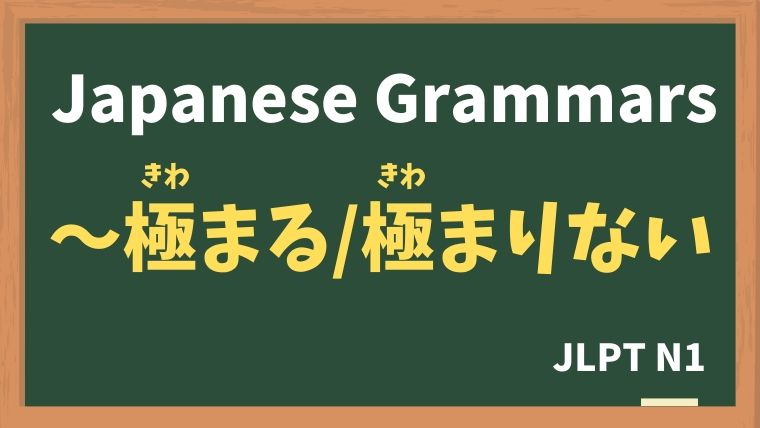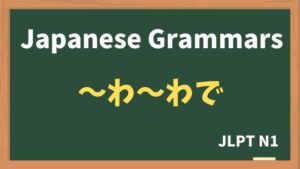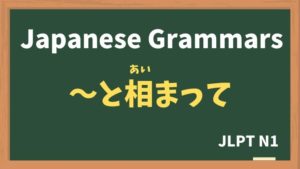
Explanation:〜極まる / 極まりない
fa-check-circleMeaning
"非常に〜だ / とても〜だ"
程度が非常に高いことを表します。
"extremely 〜 / incredibly 〜"
Used to convey the highest degree or extreme of a certain quality or state. They emphasize that something is at its utmost limit or beyond what is normally expected.
fa-check-circleForm
ナAな + 極まる
ナAな + 極まりない
ナAなこと + 極まりない
fa-check-circlePoints
- Extreme Degree: Both expressions highlight that something is at its highest point or limit, often conveying a negative connotation.
- Formal Tone: These expressions are commonly used in formal or literary contexts.
fa-check-circleJLPT Level
N1
fa-check-circleNote
「極まる」and 「極まりない」have the same meaning.
Sample sentenes
そんな軽装で山を登るなんて、危険極まりないからやめたほうがいいよ。
Climbing a mountain in such light clothing is extremely dangerous; you shouldn't do it.
この辺りにはコンビニもないし、スーパーもないし、不便極まりない。
There are no convenience stores or supermarkets around here; it's extremely inconvenient.
初対面なのに彼の態度は失礼極まりなかった。
Even though it was our first meeting, his attitude was extremely rude.
手を洗わずに料理をするのは、不衛生極まりないよ。
Cooking without washing your hands is extremely unsanitary.
毎日、ファストフードやコンビニ弁当なんて不健康極まりないよ。もっとバランスの良い食事をしないと。
Eating fast food or convenience store meals every day is extremely unhealthy. You should have a more balanced diet.
娘の結婚式で、感極まって泣いてしまった。
I was so moved at my daughter's wedding that I cried.
Vocabulary
| Japanese |
English | |
| 軽装 | けいそう | light clothes |
| 不衛生 | ふえいせい | unsanitary |






